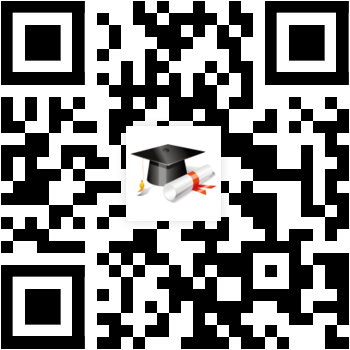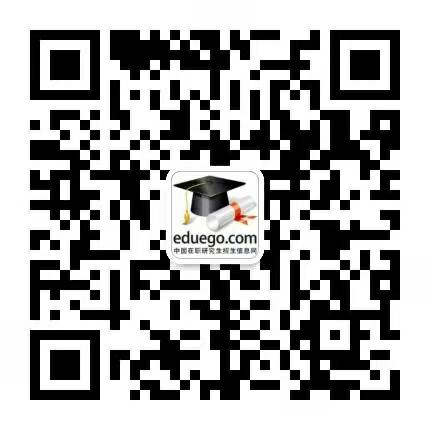2010年GCT英语试题真题附答案(一)
来源:在职研究生招生信息网 发布时间:2011-10-24 13:19:23
Part One Vocabulary and Structure
Directions:
There are ten incomplete sentences in this part. For each sentence there are four choices marked A,B,C and D .Choose the one that best completes the sentence. Mark your answer on the ANSWER SHEET with a single line through the center.
1. Beijing is well ________ its beautiful scenery and the Great Wall.
A. known as B. known to
C. known about D. known for
2. Thinking that you know ___________ in fact you don't is not a good idea.
A. what B. that
C. when D. which
3. This question is too hard, and it is _____ my understanding and comprehension.
A. below B. beyond
C. over D. without
4. "________ does Mr. Johnson go to London on business?"
"At least once a month."
A. How many B. How long
C. How often D. How
5. In order to buy her a house she had to get a ________ from the bank she likes.
A. finance B. capital
C. loan D. debt
6. Helen was much kinder to her youngest child than she was to the others, _______, of course, made the others jealous.
A. who B. what
C. that D. which
7. Any student who __________ his homework is unlikely to pass the examination.
A. reduces B. offends
C. practices D. neglects
8. I suppose you are not serious, __________?
A. do I B. don't I
C. are you D. aren't you
9. You two have got a lot _______.
A. in general B. in common
C. in all D. in any case
10. The teacher, as well as all his students, _______ by the dancer's performance.
A. was impressed B. had impressed
C. impressed D. were impressed
Part Two Reading Comprehension
Directions:
In this part there are four passages followed by questions or unfinished statements, each with four suggested answers. Choose the one that you think is the best answer. Mark your answer on the ANSWER SHEET by drawing with a pencil a short bar across the corresponding letter in the brackets.
Questions 11-15 are based on the following passage:
In the same way that a child must be able to move his arms and legs before he can learn to walk, the child must physiologically be capable of producing and experiencing particular emotions before these emotions can be modified through learning. Psychologists have found that there are two basic processes by which learning takes place. One kind of learning is called "classical conditioning.' This occurs when one event or stimulus is continuously followed by a reward or punishment. It is through classical conditioning that a child learns to associate his mother's face and voice with happiness and love, for he learns that this person provides food and comfort. Negative emotions are learned in a similar fashion.
The second kind of learning is called "operant (动作的) conditioning." This occurs when an individual learns to do things that produce rewards in his environment and learns not to do things that produce punishments. For example, if a mother always attends to her baby when he cries and cuddles him until he is quiet, she may teach him that if he cries he will get attention from mother. Thus, the baby will learn to increase his crying in order to have his mother more.
11. The main purpose of this passage is to ___________.
A. teach children how to learn to produce and experience certain emotions
B. give the common reader a general description of two basic kinds of learning
C. give parents some advice on how to modify their children's emotions through learning
D. discuss with psychologists how positive and negative feelings are produced
12. If a child is bitten or startled several times by a dog, he may learn to associate furry (有皮毛的) animals with pain or startle and thus develop a fear of furry animals. This is a typical example of learning through _________.
A. classical conditioning B. operant conditioning
C. both A and B D. neither A nor B
13. If your jokes often find a ready echo in a person, you will learn through __________ that telling jokes to this person is fun, and you will try with greater efforts to be humorous in his presence.
A. classical conditioning B. operant conditioning
C. neither A nor B D. some other sorts of conditioning
14. The word "cuddle" in Para. 2 most probably means _____________.
A. persuade B. hold close and lovely
C. threaten D. shout at
15. How can a mother help the baby to cry less?
A. Cuddle the baby until he is quiet.
B. Leave the baby alone.
C. Do not always attend to the baby.
D. Teach the baby not to cry.
Questions 16-20 are based on the following passage:
Regular child care provided outside home or by someone other than the mother does not in itself undermine healthy emotional connections between mothers and their 15-month-old infants, according to a long-term national study. The finding holds even if care begins during the first 3 months after birth and runs for 30 hours or more per week.
Among infants who receive unkind and unresponsive care from their mothers, however, the mother-child relationship may be damaged. "This research helps us put apart complexities regarding child care that have not previously been studied in detail," contends Jay Belsky, a psychologist.
The investigation consists of 1, 153 children and their families living in or near Boston. The youngsters, no more than 1 month old when they entered the study in 1991, will be tracked until the age of 7. Experimenters administered questionnaires to mothers in their homes and videotaped baby caretakers interacting with the kids at ages 1, 6, and 15 months. Independent observers rated the quality of each child care efforts and noted infant nervousness. Unlike most previous studies, this one allows researchers to observe each caretaker's personality at child nursing, and kids' emotional reaction by the equipment.
16. From the first paragraph we know that ___________.
A. mother care is the best according to a national study
B. child care outside home is the best in accordance with the study
C. regular child care outside home may play a role as a mother
D. connections between mothers and infants are damaged by outside care
17. According to the passage, unresponsive care from a mother may ___________.
A. rain a kid's growth
B. harm the mother-child tie
C. injure a baby's emotional reaction
D. spoil a child's personality
18. Jay Belsky implies that the study of child care ______________.
A. was never carded out in the past
B. was not much done in detail in the past
C. was greatly ignored by psychologists and researchers
D. was interesting, but very difficult to make discovery
19. The main difference between the investigation and the previous ones is that ____________.
A. the researchers started with only one month old infants
B. the observers could rate the quality of child care efforts and analyzed them soon
C. the researchers were able to give the questionnaires to mothers in their homes
D. video equipment enabled researchers to observe what was happening directly
20. Which of the following is not TRUE of the investigation?
A. It will last at least 7 years.
B. Cooperation from the mothers is also necessary.
C. Some independent observers play a part.
D. Researchers paid site visits to see a caretaker's personality and kids' emotional reaction.
Questions 21-25 are based on the following passage:
Successful innovations have driven many older technologies to extinction and have resulted in higher productivity, greater consumption of energy, increased demand for raw materials, accelerated flow of materials through the economy and increased quantities of metals and other substances in use per person. The history of industrial development is full of examples.
In 1870, horses and mules were the prime source of power on U.S. farms. One horse or mule was required to support four human beings-a ratio that remained almost constant for many decades. At that time, had a national commission been asked to forecast the horse and mule population for 1970, its answer probably would have depended on whether its consultants were of an economic turn of mind. Had they been "economists", they would have recognized that the power of steam had already been harnessed to industry and to land and ocean transport. They would have recognized further that would be only a matter of time before steam would be the prime source of power on the farm. It would have been difficult for them to avoid the conclusion that the horse and mule population would decline rapidly.
21. Which of the following is NOT mentioned by the author as a consequence of new technological developments?
A. Older technologies die away.
B. The quality of life is improved.
C. Overall productivity increases.
D. More raw materials become necessary.
22. It can be inferred from the passage that by 1870 _________.
A. the steam engine had been invented
B. a national commission on agriculture had been established
C. the U.S. horse population was about 10 million
D. technology began to be more economical
23. Which of the following statements would the author of the passage be most likely to agree?
A. Technological development influences society's future.
B. Technological innovations are almost always successful.
C. Technicians are more useful to society than economists.
D. The economy is independent of technological transformation.
24. In the second paragraph, the author suggests that "economists" would _______.
A. consult the national commission on the economy
B. plan the economy through yearly forecasts
C. consider the influence of technological innovation important
D. value the economic contribution of farm animals
25. What is the author's attitude toward changes brought on by technological innovation?
A. He is excited about them. B. He is disturbed by them.
C. He questions their usefulness. D. He accepts them as natural.
Questions 26-30 are based on the following advertisements:
A
Quiet student offered
room in private house.
Share bath and kitchen.
$ 50 weekly excluding
gas/electricity B
Professional couple, 3 children,
2, 4 and 6, offer single room,
rent-free, to student willing to
baby-sit 3 evenings weekly,
occasional weekends. Live as family.
C
Double room suitable 2 students sharing.
Cooking facilities, share bathroom.
Non-smokers only.
$ 70 each weekly, excluding gas/electricity. D
Teacher going on 3-month study course abroad willing to let comfortably furnished flat in prestige block to responsible students. 2 double bedrooms, 1 single. Use of garden.
Rent $ 70 each, weekly, inclusive.
No late parties.
INTERESTED? CONTACT: Joan Benson, student accommodation officer. Room 341 Moff Building. Fri. 10:00 a. m.-5:00 p. m.
26. The information in the form may come from ____________.
A. an advertisement in a formal newspaper
B. a college notice board
C. a leaflet from a travel agency
D. a notice in the window of an estate agent
27. The single room offered in section A would be suitable for a student ___________.
A. fond of keeping pets
B. doing intensive study
C. anxious to make new friends
D. wanting self-contained accommodation
28. A student accepting the offer in B ___________.
A. had better have some experience of child care
B. would have no free time at all
C. must be a member of this large family
D. would be able to live everyday cheaply
29. For two students ad D would be more economical than ad C because ___________.
A. they would share a room
B. the basic expenses are cheaper
C. there are no extras except for food
D. there is free use of the garden
30. The flat offered in ad D _____________.
A. is expensively furnished
B. is on the first floor
C. can only accommodate four people
D. is only available for a short period
下一篇: 2010年GCT英语试题真题附答案(二)





















